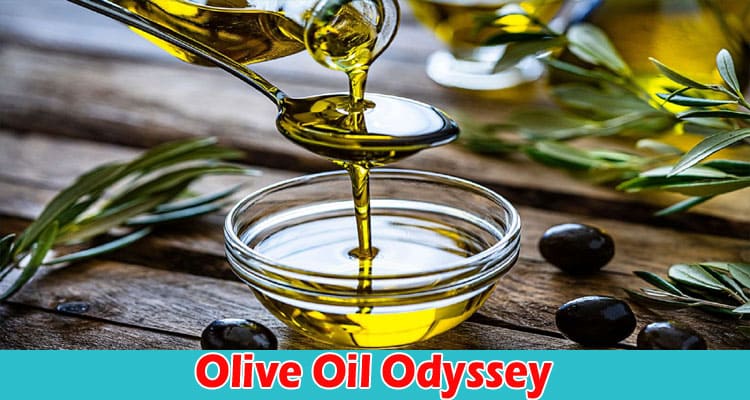Mediterranean cuisine has relied on olive oil, also known as “liquid gold,” for centuries. Olive oil is called “liquid gold.” It’s a compelling research topic because of its extensive history, varied applications, and many health benefits. In this comprehensive topic, we will explore olive oil’s history, production methods, nutritional properties, and many culinary and other uses.
The Origins of Olive Oil
A Historical Journey: The history of olive oil may be traced back to ancient civilizations, with evidence of its use in the Mediterranean region stretching as far back as 2500 BCE. The voyage through time begins with the discovery of olive oil. Ancient civilizations like the Greeks and Romans cultivated the olive tree, also known as Olea europaea, for its culinary and medicinal uses.
Growing and Harvesting: After establishing olive trees, olives are harvested to make olive oil. These resistant trees, predominantly grown in Spain, Italy, Greece, and Tunisia, thrive in Mediterranean temperatures. Olives are gathered in late fall when they are mature. The traditional method of hand-picking can be replaced by modern machinery.
The Olive Oil Production Process
For high-quality olive oil, the extraction process must be laborious and precise. Crushing, pressing, and extracting the oil from the olive paste follow washing the olives. The flavor and quality of the oil can be affected by centrifugation and cold pressing.
Types of Olive Oil
Each type of olive oil has its own properties.
Extra Virgin Olive Oil: Extra virgin olive oil is ideal.. It’s made from the first cold-pressing of olives without heat or chemicals. Due to its low acidity and high polyphenol content, it is considered healthful. Additionally, it tastes rich and delicious.
Virgin Olive Oil: Virgin olive oil is identical to extra virgin olive oil but more acidic. Despite this, it tastes and smells great.
Laudemio Frescobaldi extra virgin olive oil: Laudemio Frescobaldi Extra Virgin Olive Oil is made by the Frescobaldi family, known for their wine and olive oil manufacturing in Tuscany. Italian extra virgin olive oil production is rated among the best in the country’s history.
Pure Olive Oil: Pure Olive Oil contains virgin and refined olive oils. The flavor and color are usually milder than extra virgin olive oil.
Nutritional Benefits of Olive Oil
Olive oil’s nutrients are powerful. Monounsaturated lipids, antioxidants, and polyphenols are present. These boost heart health, reduce inflammation, and function as an antioxidant. Olive oil is important in the Mediterranean diet and has several health advantages.
Culinary Uses of Olive Oil
Mediterranean cuisine relies on olive oil to add taste and depth. Use it to dip bread and pour over salads. Sautéing and frying are other methods. It can be used in pasta, sweet, and other recipes due to its versatility.
Beyond the Kitchen: Non-Culinary Uses
Olive oil has many uses outside the kitchen. Its hydrating characteristics make it popular in skin and hair care products. Traditional medicine has treated numerous ailments with it. Olive oil has religious and cultural significance in several civilizations. This is especially true in Mediterranean countries.
The Global Olive Oil Industry
Mediterranean countries dominate olive oil production. However, climate change and competitiveness pose challenges. Sustainability and organic farming are becoming more essential as trends change.
Frequently Asked Question
Let’s discuss olive oil’s various FAQs:
1. Where does olive oil come from?
Pressing Olea europaea olive fruit yields olive oil. Mediterranean countries like Spain, Italy, Greece, and Tunisia have grown it.
2. How does olive oil help health?
Olive oil has heart-healthy monounsaturated fats, antioxidants, and polyphenols that lower inflammation and fight inflammation. The heart-healthy Mediterranean diet starts with this mainstay.
3. How should I store olive oil to maintain quality?
Olive oil should be stored in a cool, dark place away from heat and sunshine. Hermetically sealing the product prevents oxidation and preserves its freshness.
4. Can olive oil cook at high temperatures?
Extra virgin olive oil cooks best at low to medium temperatures due to its low smoke point. Frying requires virgin or pure olive oil with a higher smoke point.
5. Is olive oil used for something other than cooking?
Olive oil is used in hair and skin moisturizers due to its hydrating characteristics. Ginseng is also utilized in traditional medicine and has cultural and religious significance in many nations.
Conclusion
With its long history, many uses, and health advantages, olive oil remains a valuable commodity. Its use in cooking and elsewhere shows its relevance and appeal today. In the kitchen and in personal care, olive oil symbolizes history, health, and gastronomic delight.
In conclusion, olive oil is a cultural treasure, a symbol of good health, and a versatile product with uses outside the kitchen. When you sprinkle it over your salad or sauté veggies, remember that you are adding flavor and benefiting from a long history and many health benefits. Olive oil is gold.







